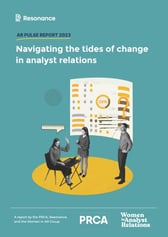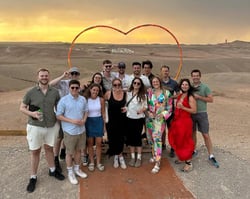
Who are Gen Z? As a card-carrying member of Generation Z, I like to think I know the answer to this question. In the plainest terms, we are any person born after 1997, but who we are is a much broader question about where our values and priorities lie.
As the proportion of Gen Z in the workforce continues to grow and we gather more buying power, PR must adapt to our ways of seeing the world and garner a comprehensive understanding of the above questions.
Studies suggest that Gen Z spend on average five hours a day, compared to Gen X who spend two, on their smartphones and have a keen eye for social responsibility – we’re tuned into so-called ‘greenwashing’ and ‘rainbow-washing’.
According to Deloitte’s 2022 Gen Z and Millennial Survey, 64% of Gen Zs would pay more to purchase an environmentally sustainable product, whilst 18% of Gen Zs think our employers are firmly committed to fighting climate change. All the while, we have a keener sense of their fiscal positioning, with 46% of Gen Zs saying they live pay-check to pay-check.
During a cost-of-living crisis, it is hard to be as picky about where you spend your money, but I still try to avoid buying from brands with poor social responsibility. I place a lot of stock not in the words of big brands, but in their actions.
How this affects the PR industry
As a member of Gen Z working in the PR industry, I have noticed first-hand how Gen Z has altered how brands position themselves. What can PRs learn from this? First, transparency and social responsibility are critical factors in Gen Z’s relationships with our employers and purchasing habits. Stretching and spinning the truth have no place in PR us. We value our money and think carefully about where to spend it and what to spend it on.
The form in which we receive marketing is also predominantly mobile – given that is where we spend much of our time. Influencer marketing combines the need for authentic figures with a medium that reaches a larger portion of the Gen Z market.
Furthermore, the type of content Gen Z is interested in receiving has changed. Traditional media are embracing the new breed of communication platforms – sites like Tik Tok, Twitter and Snapchat – to reach us via the apps they spend most of their time on. Therefore, PR should look for innovative ways to reach Gen Z; interactive content, video content and collaborations with influencers are just some ways to achieve this.
For B2B brands this means building transparent communication practices, and encouraging the brands they work with to think carefully about their brand positioning and the companies they work with.
Gen Z crave authenticity
One facet of this change in media consumption is the register through which our generation communicates with advertising and marketing. Formality in advertising is a thing of the past. Instead, what we wants is to feel that the brands we engage with understand us and our views, so they should communicate in a conversational and informal tone.
Gen Z currently makes up just 30% of the market, so this should not be a ‘throwing a baby out with the bathwater’ situation, as 70% of the market still respond to more traditional forms of PR. However, that percentage will only grow, so PR firms need to ensure this shift in attitudes does not leave them in the dust. PR companies need to evolve the conversation to encompass new forms of communication, and our priorities as the next generation.
For B2B businesses wanting to appeal to this generation, the best strategy for building trust is to be authentic. By meeting us where we are, with the right content, businesses can successfully start to tap into the Gen Z market.
Getting your PR right is critical to ensure you’re speaking to the right people, at the right time, with the right message. We’re here to help – get in touch today.



 "The intricacies of the data-driven landscape is written into the DNA of Resonance. We are built for the data economy."
"The intricacies of the data-driven landscape is written into the DNA of Resonance. We are built for the data economy.".jpeg?width=250&height=181&name=AdobeStock_565367297%20(1).jpeg)
 "In Tech PR we have a front row seat to the changing technology landscape. From Generative AI to Quantum, it's our job to insert our clients' voices into the narrative"
"In Tech PR we have a front row seat to the changing technology landscape. From Generative AI to Quantum, it's our job to insert our clients' voices into the narrative"



 "In a world where the only constant is change, how do tech brands stay one step ahead of the market? That's where Resonance comes in"
"In a world where the only constant is change, how do tech brands stay one step ahead of the market? That's where Resonance comes in".png?width=219&height=219&name=Seb%20Moss%20wavelength%20thumbnail%20(1).png)

 "Resonance is a group of technology, business and communications experts"
"Resonance is a group of technology, business and communications experts"

